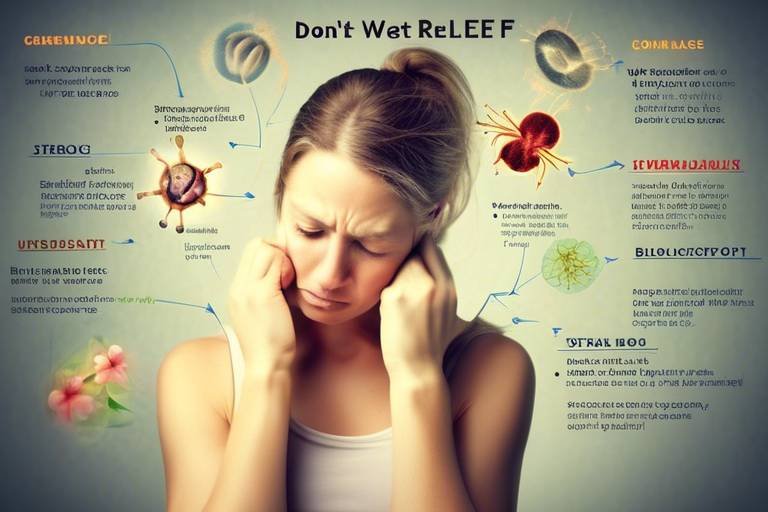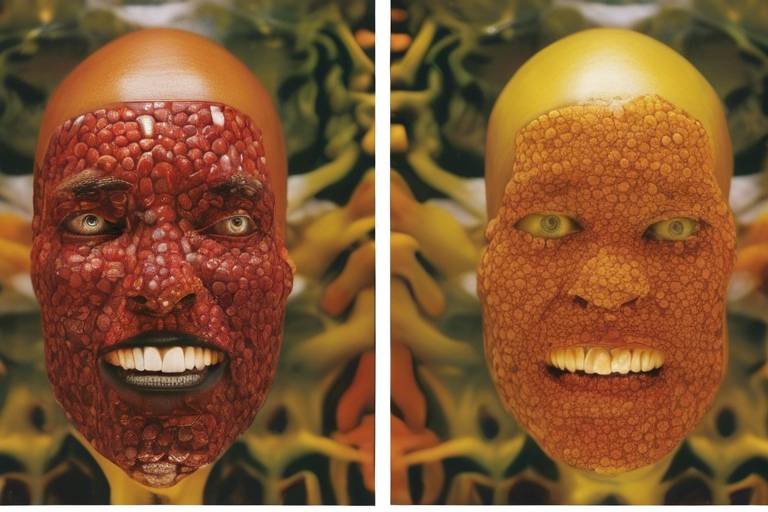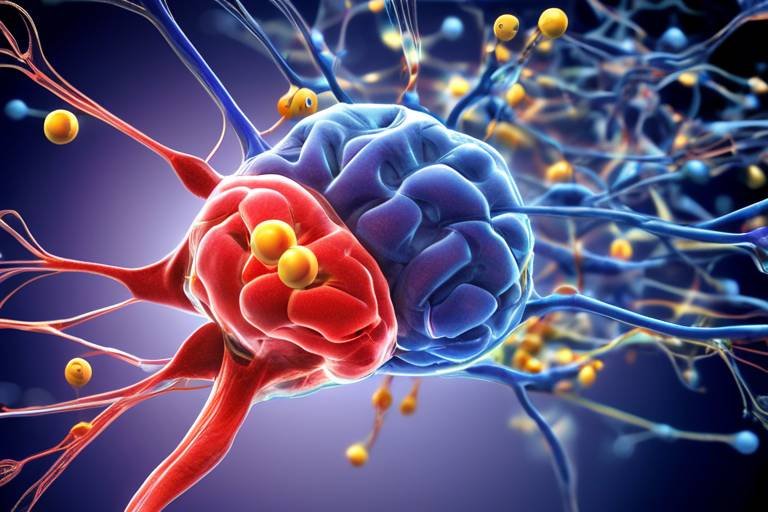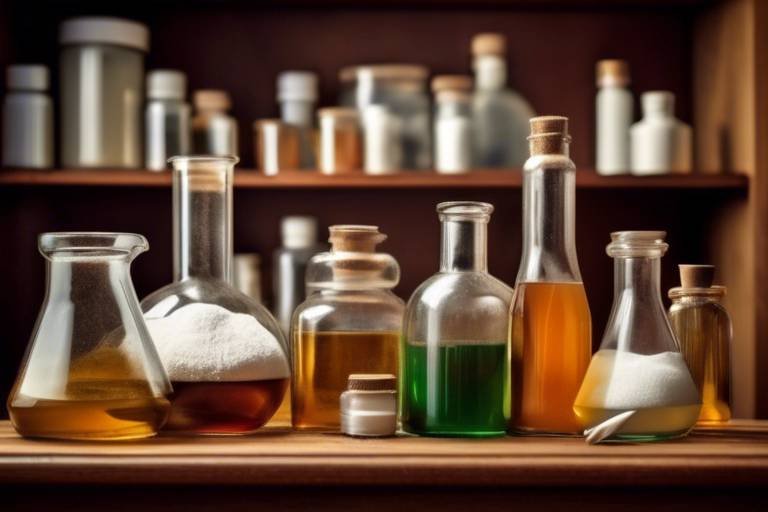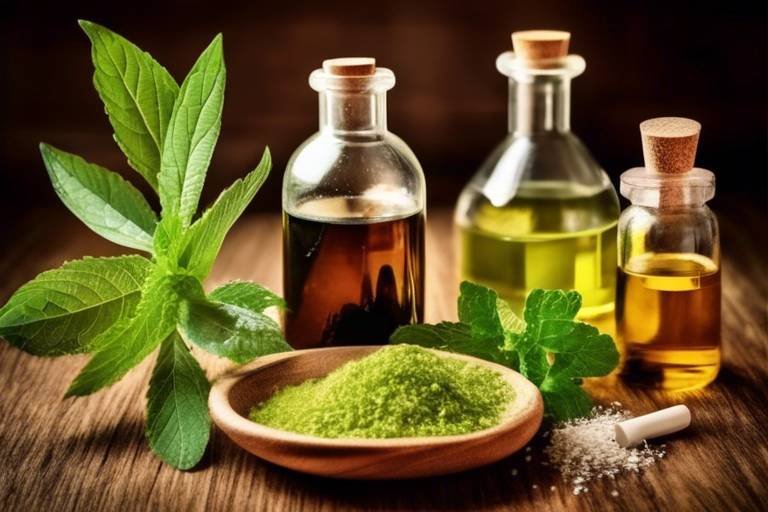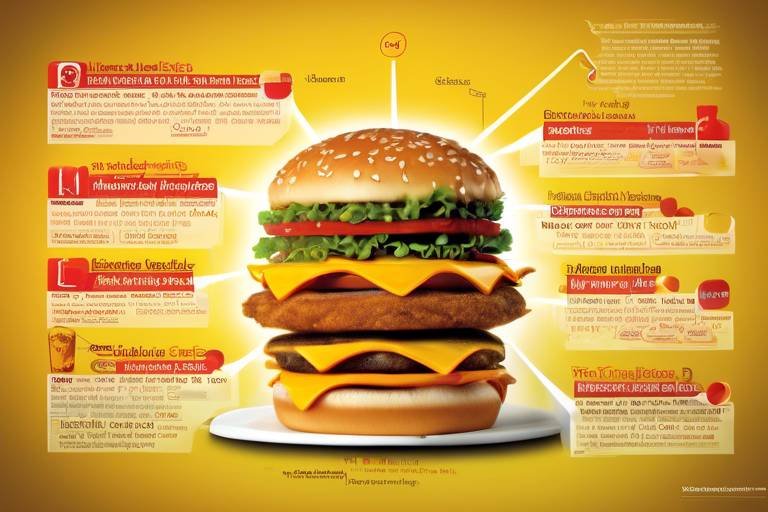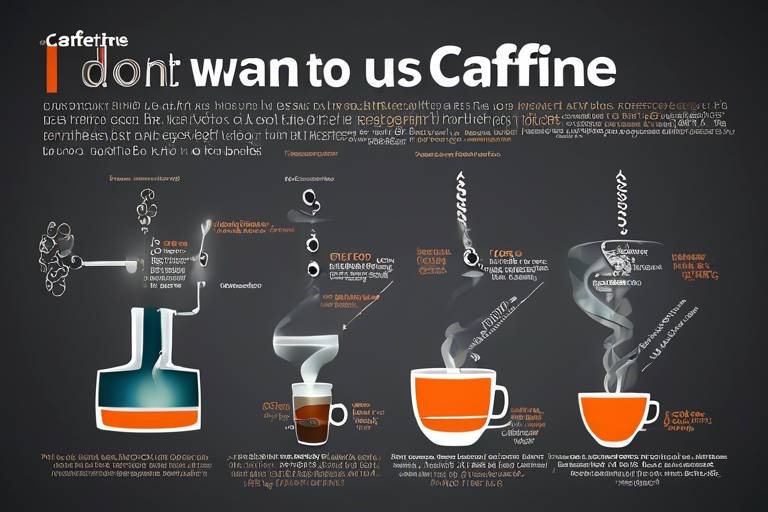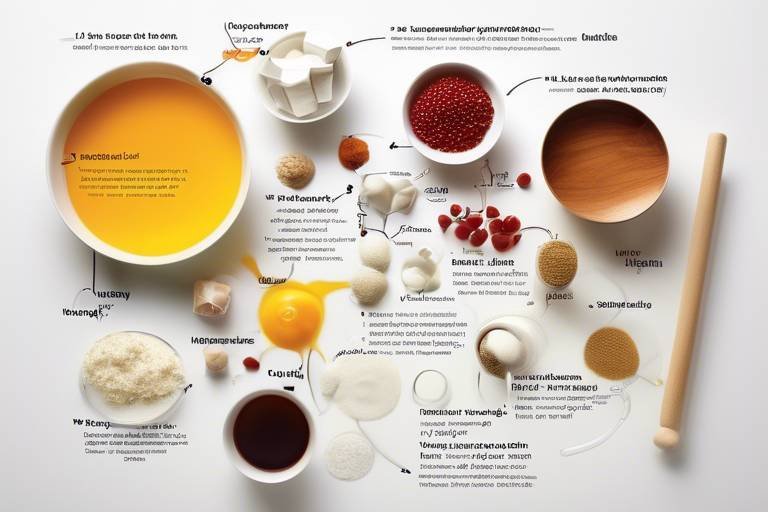The Role of Zinc in Daily Health - What to Know
Zinc is a powerhouse mineral that often flies under the radar when we talk about essential nutrients. But let me tell you, its importance in our daily health is nothing short of remarkable! Imagine your body as a well-oiled machine, where every part needs the right fuel to function smoothly. Zinc is one of those critical fuels that keeps everything running, from your immune system to your skin health. It’s like the unsung hero in the superhero movie of your body’s health, quietly but effectively fighting off villains like infections and inflammation.
So, what exactly makes zinc so vital? For starters, it plays a crucial role in numerous bodily functions. Think of zinc as a building block for your body; it’s essential for immune response, wound healing, and even DNA synthesis. Without adequate zinc, your body can struggle to perform these essential functions effectively, leading to a cascade of health issues. It’s like trying to bake a cake without flour—sure, you might get something that resembles a cake, but it’s not going to be the delicious treat you were hoping for!
The benefits of zinc are as diverse as they are significant. Let’s dive into some of the ways zinc can enhance your health:
- Enhancing Immune Function: Zinc is known for its ability to bolster the immune system. It supports cellular function and helps reduce oxidative stress, allowing your body to fend off infections and illnesses more effectively.
- Supporting Skin Health: If you’re struggling with skin issues like acne or eczema, zinc could be your new best friend. It promotes healing and helps maintain skin integrity.
- Promoting Wound Healing: Zinc plays a vital role in the healing process. It’s like a band-aid for your body at a cellular level, helping wounds heal faster.
- Aiding in Taste and Smell: Ever noticed how your taste buds seem off when you’re sick? Zinc is crucial for maintaining your sense of taste and smell, which can significantly contribute to your overall quality of life.
When it comes to your immune system, zinc is like a bodyguard. It supports various cellular functions that are crucial for a robust immune response. Research has shown that zinc can help reduce the duration and severity of colds. Imagine having a shield that not only protects you but also helps you recover faster when you do get sick. That's zinc for you!
Inflammation is a natural response to injury or infection, but chronic inflammation can lead to serious health issues. Zinc has been found to have anti-inflammatory properties, helping to modulate these responses in the body. It’s like having a thermostat that keeps inflammation in check, potentially reducing the risk of chronic diseases linked to prolonged inflammation.
In addition to its immune-boosting benefits, zinc contributes to the body's antioxidant defense system. It helps neutralize free radicals, which are unstable molecules that can cause cellular damage. Think of free radicals as the bad guys in a superhero movie—zinc is the hero that swoops in to save the day, protecting your cells from oxidative damage and keeping you healthier for longer.
For those looking to improve their skin condition, zinc is an essential mineral. It helps maintain skin integrity, promotes healing, and can even prevent acne. If you’ve ever battled with breakouts, incorporating zinc into your diet might just be the game-changer you need. It’s like having a secret weapon in your skincare arsenal!
Now that you know how important zinc is, you might be wondering how to get enough of it in your diet. A balanced diet rich in zinc can be achieved through a variety of foods. Here are some excellent dietary sources:
| Food Source | Zinc Content (mg per 100g) |
|---|---|
| Meat (beef, pork, lamb) | 4.0 - 10.0 |
| Shellfish (oysters, crab) | 30.0 - 80.0 |
| Legumes (beans, lentils) | 1.0 - 3.0 |
| Nuts and seeds | 3.0 - 5.0 |
| Dairy products | 1.0 - 2.0 |
| Whole grains | 1.0 - 3.0 |
If you follow a vegetarian or vegan diet, fear not! You can still obtain zinc from plant-based sources. Foods like legumes, nuts, seeds, and fortified cereals can provide you with the zinc you need. However, it’s important to note that plant-based zinc is not as easily absorbed by the body, so you might need to consume higher quantities to meet your daily requirements.
For those who find it challenging to meet their zinc needs through diet alone, supplementation may be necessary. However, it’s crucial to consult a healthcare professional before starting any supplements to determine the appropriate dosages. Too much zinc can lead to toxicity, so it’s essential to find that sweet spot!
Now, let’s talk about what happens when you don’t get enough zinc. Zinc deficiency can lead to a range of health issues, including:
- Weakened immunity
- Delayed wound healing
- Hair loss
- Impaired taste and smell
These consequences highlight the importance of maintaining adequate zinc levels in your body. It’s not just about avoiding illness; it’s about thriving!
1. How much zinc do I need daily?
The recommended daily allowance for zinc varies by age and gender. For adult men, it’s around 11 mg, and for adult women, it’s about 8 mg.
2. Can I get enough zinc from my diet?
Yes, with a balanced diet that includes a variety of zinc-rich foods, most people can meet their zinc needs without supplementation.
3. What are the symptoms of zinc deficiency?
Symptoms can include weakened immunity, hair loss, delayed wound healing, and changes in taste or smell.
4. Is it safe to take zinc supplements?
While zinc supplements can be beneficial, it’s important to consult a healthcare professional to avoid the risk of toxicity.

Understanding Zinc's Importance
Zinc is an essential mineral that plays a vital role in numerous bodily functions, making it a cornerstone of our overall health and well-being. Think of zinc as the unsung hero of our body; it works tirelessly behind the scenes to keep everything running smoothly. From bolstering our immune system to aiding in wound healing, its contributions are both diverse and critical. Without adequate zinc, our bodies can struggle to perform at their best.
One of the most fascinating aspects of zinc is its involvement in over 300 enzymatic reactions. This means that zinc is crucial for processes such as protein synthesis, DNA synthesis, and cell division. Imagine trying to build a house without the right tools; that’s what it’s like for our bodies without sufficient zinc. It’s not just about having enough of this mineral; it’s about making sure our bodies have the right amounts to function optimally.
Moreover, zinc is key to maintaining a healthy immune response. It helps regulate the activity of immune cells, ensuring they respond appropriately to threats. This is particularly important in today’s world, where we are constantly exposed to various pathogens. A deficiency in zinc can lead to a weakened immune system, making us more susceptible to infections. It’s like having a security system that’s not functioning properly; without it, we are left vulnerable.
In addition to immune support, zinc plays a significant role in wound healing. When we get a cut or scrape, zinc helps to speed up the healing process by promoting cell growth and repair. This is why you might find zinc in many topical ointments and creams; it’s a natural way to enhance the body’s healing capabilities. Think of zinc as the construction crew that rushes in to fix the damage and restore order.
Furthermore, zinc is crucial for maintaining our sense of taste and smell. Have you ever noticed that when you’re sick, food doesn’t taste as good? That’s partly due to a drop in zinc levels. This mineral helps our taste buds function properly, ensuring that we can enjoy the flavors of our favorite foods. It’s a reminder of how interconnected our bodily functions are; a deficiency in one area can have a ripple effect on others.
In summary, understanding the importance of zinc is essential for anyone looking to maintain their health. It’s not just a mineral; it’s a vital component that supports various bodily functions, from immune response to wound healing. Ensuring an adequate intake of zinc through diet or supplementation can help keep your body in peak condition, allowing you to enjoy life to the fullest.

Health Benefits of Zinc
Zinc is not just another mineral; it’s a powerhouse that plays a crucial role in various bodily functions. When you think about your body's defense mechanisms, zinc is like the unsung hero working behind the scenes. One of its most significant contributions is enhancing immune function. Have you ever noticed that when you’re feeling under the weather, your body craves more nutrients? That’s because your immune system is working overtime, and zinc is a key player in this process. It helps produce and activate T-cells, which are essential for fighting off infections. Think of T-cells as your body’s special forces, and zinc is their training ground!
But wait, there’s more! Zinc doesn’t just stop at immune support; it also promotes wound healing. If you’ve ever had a cut or scrape, you might have noticed how some ointments contain zinc. This is because zinc helps in synthesizing proteins and cell membranes, which are vital for repairing tissue. Imagine your body as a construction site; zinc is like the foreman ensuring that everything is built back up correctly and efficiently.
Another fascinating aspect of zinc is its role in skin health. If you’re struggling with acne or other skin conditions, zinc might just be the mineral you need. It helps regulate oil production in the skin and has anti-inflammatory properties that can soothe irritated skin. You might even say that zinc acts as a bodyguard for your skin, protecting it from damage and keeping it looking fresh.
Moreover, zinc is known to aid in taste and smell. Ever heard of people losing their sense of taste when they’re sick? That’s often linked to zinc deficiency. This mineral is essential for the proper functioning of taste buds and olfactory senses. So, next time you savor a delicious meal, remember that zinc is quietly working to enhance that experience!
To sum it up, zinc is a multifaceted mineral that benefits our health in numerous ways. From bolstering immune responses and promoting wound healing to supporting skin health and enhancing our senses, zinc is truly a vital nutrient for maintaining a better quality of life. For those who are concerned about their zinc intake, it’s essential to consider incorporating zinc-rich foods into your diet or consulting a healthcare professional about supplementation.
- What foods are high in zinc? Foods such as meat, shellfish, legumes, seeds, nuts, dairy, and whole grains are excellent sources of zinc.
- Can I get enough zinc from a vegetarian diet? Yes, vegetarians can obtain zinc from plant-based sources like legumes, nuts, and fortified cereals, but they may need to consume larger amounts.
- What are the symptoms of zinc deficiency? Symptoms can include weakened immunity, delayed wound healing, hair loss, and impaired taste and smell.
- Is it safe to take zinc supplements? While supplements can be beneficial, it's crucial to consult a healthcare professional to determine the right dosage for your needs.

Zinc and Immune Function
Zinc is often hailed as a superhero for your immune system, and for good reason! This essential mineral works tirelessly behind the scenes to ensure that your body can defend itself against various pathogens, from pesky colds to more severe infections. Think of zinc as the supportive sidekick to your immune system's main heroes—like white blood cells and antibodies. Without adequate zinc levels, these heroes might struggle to perform their duties effectively.
One of the primary ways zinc boosts immune function is by enhancing the activity of T-cells, which are crucial for identifying and eliminating infected cells in your body. Imagine T-cells as the detectives of your immune system, constantly on the lookout for anything suspicious. Zinc helps these detectives work more efficiently, ensuring they can quickly respond to threats. Furthermore, zinc plays a role in the production of cytokines, which are signaling molecules that help regulate immune responses. When cytokines are in balance, your body can mount the right response to infections without overreacting, which can lead to inflammatory diseases.
But wait, there's more! Zinc is also known to reduce oxidative stress, which is like the wear and tear on your body's cells. When your body faces infections, it produces free radicals that can cause damage. Zinc acts as a shield, neutralizing these harmful molecules and protecting your cells from damage. This is why adequate zinc intake is crucial, especially during cold and flu season, when your immune system needs to be in top shape.
To summarize, here are some key points about zinc's role in immune function:
- Enhances T-cell activity: Boosts the efficiency of your immune response.
- Regulates cytokine production: Helps maintain a balanced immune response.
- Reduces oxidative stress: Protects cells from damage during infections.
Incorporating zinc-rich foods into your diet can be a game-changer for your immune health. Foods like oysters, beef, pumpkin seeds, and lentils are fantastic sources of zinc. If you find it challenging to get enough zinc from your diet, you might want to consider supplements. However, it’s essential to consult with a healthcare professional before starting any new supplement regimen, as they can guide you on the right dosage and ensure it’s safe for you.
In conclusion, zinc is a vital player in supporting your immune function, helping your body fend off illnesses more effectively. Maintaining adequate zinc levels is not just about preventing sickness; it’s about empowering your body to perform at its best. So, make sure to give your immune system the zinc it needs to be the hero you rely on!

Zinc's Role in Inflammation
Zinc is often hailed as a superhero mineral, and for good reason! When it comes to inflammation, zinc plays a pivotal role in keeping our bodies balanced and healthy. Inflammation is the body’s natural response to injury or infection, but when it becomes chronic, it can lead to a host of health issues, including heart disease, diabetes, and even cancer. This is where zinc steps in, acting like a shield to modulate this response.
Research has shown that zinc possesses remarkable anti-inflammatory properties. It helps regulate the activity of various immune cells, such as T cells and macrophages, which are essential for fighting off pathogens and healing injuries. By doing so, zinc not only reduces the severity of inflammation but also aids in the timely resolution of the inflammatory process. Think of it as a traffic cop, directing immune responses and ensuring that they don’t spiral out of control.
Moreover, zinc is involved in the production of cytokines, which are signaling proteins that mediate and regulate immunity and inflammation. A balanced level of zinc helps maintain the right amount of cytokines, preventing the body from overreacting to minor irritants. Without adequate zinc, the immune system can become dysregulated, leading to excessive inflammation. This can manifest in various ways, including joint pain, skin conditions, and even digestive issues.
To illustrate the importance of zinc in managing inflammation, consider the following table that summarizes its effects on different inflammatory conditions:
| Inflammatory Condition | Zinc's Effect |
|---|---|
| Arthritis | Reduces joint inflammation and pain |
| Skin Conditions (e.g., eczema) | Promotes healing and reduces redness |
| Respiratory Infections | Supports immune response and reduces duration |
In summary, maintaining adequate zinc levels is crucial for managing inflammation effectively. It’s not just about preventing illness; it’s about promoting overall health and well-being. So, whether you’re dealing with chronic inflammation or just looking to support your immune system, consider adding zinc-rich foods to your diet or discussing supplementation with your healthcare provider.
- What are the symptoms of zinc deficiency? Symptoms may include weakened immunity, delayed wound healing, hair loss, and impaired taste and smell.
- Can I get enough zinc from my diet? Yes, a balanced diet including meat, shellfish, legumes, nuts, and seeds can provide sufficient zinc.
- Is it safe to take zinc supplements? While zinc supplements can be beneficial, it’s important to consult with a healthcare professional to determine the right dosage for your needs.

Zinc and Antioxidant Defense
Zinc plays a pivotal role in the body's antioxidant defense system, acting as a crucial player in neutralizing harmful free radicals that can wreak havoc on our cells. Think of free radicals as tiny, mischievous troublemakers that can cause oxidative stress, leading to cellular damage and contributing to various chronic diseases. By incorporating zinc into your daily routine, you’re essentially arming your body with a shield that helps fend off these relentless attackers.
One of the most fascinating aspects of zinc's antioxidant properties is its ability to work in harmony with other antioxidants, enhancing their effectiveness. For instance, zinc is known to support the activity of enzymes like superoxide dismutase (SOD), which is a powerhouse in combating oxidative stress. By promoting the function of these enzymes, zinc helps maintain a delicate balance within the body, ensuring that oxidative damage is kept at bay.
Moreover, zinc's role in antioxidant defense extends beyond just neutralizing free radicals. It also assists in regulating the expression of genes involved in antioxidant production. This means that adequate levels of zinc can help your body produce its own defense mechanisms against oxidative stress, making it a vital mineral for maintaining overall health and vitality.
Incorporating zinc-rich foods into your diet can significantly enhance your body’s ability to defend against oxidative damage. Here’s a quick look at some of the top sources of zinc:
| Food Source | Zinc Content (mg per 100g) |
|---|---|
| Oysters | 78 |
| Red Meat | 26 |
| Poultry | 24 |
| Beans | 3.5 |
| Nuts | 5.5 |
In summary, zinc is not just another mineral; it is a crucial component of your body's antioxidant defense system. By ensuring you get enough zinc through your diet or supplements, you are taking a proactive step toward protecting your body from oxidative stress and its associated health risks. Remember, a little zinc can go a long way in keeping those pesky free radicals in check!
- What are the symptoms of zinc deficiency? Symptoms can include weakened immunity, delayed wound healing, hair loss, and impaired taste and smell.
- Can I get enough zinc from a vegetarian diet? Yes, but vegetarians may need to consume larger quantities of plant-based sources like legumes, nuts, and seeds.
- Is it safe to take zinc supplements? While zinc supplements can be beneficial, it’s important to consult a healthcare professional to determine the right dosage for your needs.

Zinc for Skin Health
Zinc is not just a mineral; it’s a powerhouse when it comes to skin health! Imagine your skin as a fortress, and zinc is one of the key builders ensuring that fortress remains strong and resilient. This essential mineral is crucial for maintaining skin integrity, promoting healing, and even preventing pesky issues like acne. The role of zinc in skin health is multifaceted, and understanding it can empower you to take better care of your skin.
One of the standout benefits of zinc is its ability to support the skin's natural healing process. When you have a cut or a scrape, zinc rushes to the scene, helping to repair the damage and reduce inflammation. It’s like having a superhero ready to save the day! This mineral also plays a role in collagen synthesis, which is vital for keeping your skin youthful and elastic. Without adequate zinc, your skin may struggle to heal, leading to prolonged recovery times and potential scarring.
Moreover, zinc is known for its anti-inflammatory properties. It helps to calm irritated skin and can be particularly beneficial for those suffering from conditions like acne or eczema. By modulating inflammatory responses, zinc helps to reduce redness and swelling, allowing your skin to regain its natural glow. For those battling acne, zinc might just be the secret weapon you need. Research suggests that zinc can help reduce the severity of acne breakouts by regulating oil production and preventing the clogging of pores.
In addition to its healing and anti-inflammatory properties, zinc also contributes to the body’s antioxidant defense system. This means it helps to neutralize free radicals—those pesky molecules that can cause oxidative stress and lead to premature aging. By incorporating zinc into your skincare routine, you’re not only addressing existing skin issues but also taking proactive steps to prevent future damage. Think of zinc as a shield that protects your skin from environmental aggressors like pollution and UV rays.
To harness the benefits of zinc for your skin, consider incorporating zinc-rich foods into your diet. Foods such as meat, shellfish, legumes, nuts, and seeds are excellent sources. If you’re looking for topical solutions, many skincare products now include zinc oxide, which is often used in sunscreens and creams for its soothing and protective properties.
In summary, zinc is an unsung hero in the realm of skin health. Whether you’re looking to heal wounds, reduce inflammation, or prevent signs of aging, ensuring adequate zinc intake can make a significant difference. So, next time you think about your skincare routine, remember to give a nod to this mighty mineral!
- What is the recommended daily intake of zinc? The recommended daily intake varies by age and gender, but generally, adult men should aim for about 11 mg, while women should target 8 mg.
- Can I get enough zinc from my diet alone? Yes, a balanced diet rich in meat, seafood, legumes, nuts, and seeds can provide sufficient zinc for most individuals.
- Are there any side effects of zinc supplementation? While zinc is essential, excessive intake can lead to nausea, diarrhea, and other gastrointestinal issues. It's best to consult a healthcare professional before starting any supplements.
- Can zinc help with acne? Yes, zinc has been shown to reduce inflammation and regulate oil production, making it beneficial for acne-prone skin.

Dietary Sources of Zinc
Zinc is a powerhouse mineral that our bodies need to thrive, and the good news is that it can be found in a variety of delicious foods! Incorporating zinc-rich foods into your daily diet is not only easy but also enjoyable. You might be surprised to learn that zinc is present in both animal and plant-based sources, making it accessible for everyone, whether you're a meat lover or a vegetarian. Let’s dive into the culinary world of zinc!
Animal products are among the richest sources of zinc. For instance, meat such as beef, pork, and lamb can provide a significant amount of zinc per serving. Shellfish, particularly oysters, are renowned for their high zinc content. In fact, just a few oysters can deliver more than the daily recommended intake of zinc! Other great animal sources include dairy products like cheese and yogurt, which not only taste great but also help in maintaining bone health.
On the flip side, if you're following a plant-based diet, don’t fret! There are plenty of plant-based sources that can help you meet your zinc needs. Foods such as legumes (think chickpeas, lentils, and beans) are excellent options. Nuts and seeds, particularly pumpkin seeds and cashews, also pack a punch when it comes to zinc. Whole grains like quinoa and fortified cereals can further boost your intake. However, it’s important to note that the zinc from plant sources is not as easily absorbed by our bodies due to the presence of phytates, which can inhibit zinc absorption. Therefore, vegetarians and vegans might need to consume higher quantities of these foods to meet their daily requirements.
Here’s a quick overview of some common dietary sources of zinc:
| Food Source | Zinc Content (mg per 100g) |
|---|---|
| Oysters | 78.6 |
| Beef | 12.3 |
| Pork | 6.4 |
| Chicken | 1.0 |
| Chickpeas | 0.9 |
| Pumpkin Seeds | 7.8 |
| Cashews | 5.6 |
| Fortified Cereals | 3.8 |
Incorporating a variety of these foods into your meals can help ensure that you’re getting enough zinc. Think hearty beef stews, vibrant salads topped with pumpkin seeds, or a comforting bowl of chili filled with beans. The possibilities are endless! As you explore the world of zinc-rich foods, remember to balance your meals with other nutrients to optimize absorption and overall health.
- What is the recommended daily intake of zinc? The recommended dietary allowance (RDA) for zinc varies by age and sex, but for adult men, it is approximately 11 mg per day, while for adult women, it is around 8 mg per day.
- Can I get enough zinc from a vegetarian diet? Yes, but you may need to consume larger quantities of plant-based sources, such as legumes, nuts, and seeds, to meet your zinc needs due to lower absorption rates.
- What are the symptoms of zinc deficiency? Symptoms can include weakened immunity, delayed wound healing, hair loss, and impaired taste or smell, highlighting the importance of maintaining adequate zinc levels.

Plant-Based Sources of Zinc
Zinc is often associated with animal products, but fear not, plant-based eaters! There are plenty of delicious and nutritious sources of zinc available for those following a vegetarian or vegan diet. While it’s true that zinc from plant sources may not be absorbed as efficiently as that from animal sources, incorporating a variety of these foods can help you meet your daily requirements. Think of it as a treasure hunt for nutrients; you just need to know where to look!
Some of the best plant-based sources of zinc include:
- Legumes: Beans, lentils, and chickpeas are not only rich in zinc but also provide protein and fiber, making them a fantastic addition to your meals.
- Nuts and Seeds: Pumpkin seeds, sesame seeds, and cashews are particularly high in zinc. They can be enjoyed as snacks, added to salads, or blended into smoothies.
- Whole Grains: Foods like quinoa, oats, and brown rice contain zinc and are great for energy, making them staples in a balanced diet.
- Fortified Cereals: Many breakfast cereals are fortified with zinc, providing an easy way to boost your intake right at the start of your day.
To maximize zinc absorption from these plant sources, consider pairing them with foods high in vitamin C, such as citrus fruits, bell peppers, or broccoli. This combination can enhance the bioavailability of zinc, allowing your body to make the most of the nutrients you consume. So, whether you’re tossing a bean salad, snacking on nuts, or enjoying a hearty bowl of oatmeal, you can rest assured that you’re nourishing your body with this essential mineral.
It's also important to note that some plant foods contain phytates, which can inhibit zinc absorption. However, soaking, sprouting, or fermenting these foods can significantly reduce phytate levels, making zinc more accessible for your body. Think of these methods as unlocking the door to better nutrition!
In summary, while it may take a bit more effort to ensure adequate zinc intake on a plant-based diet, the variety of available sources means that you can easily incorporate this vital mineral into your meals. So, get creative in the kitchen and enjoy the health benefits that come with a zinc-rich diet!
1. What are the symptoms of zinc deficiency?
Symptoms can include weakened immunity, delayed wound healing, hair loss, and impaired taste and smell. If you suspect a deficiency, it’s best to consult a healthcare professional.
2. Can I get enough zinc from a vegan diet?
Yes! With careful planning and a variety of zinc-rich foods, vegans can meet their zinc needs. Focus on legumes, nuts, seeds, and fortified foods.
3. How much zinc do I need daily?
The recommended dietary allowance (RDA) for zinc varies by age and gender, but generally, adult men need about 11 mg and adult women need about 8 mg per day.
4. Are there any side effects of taking zinc supplements?
While zinc supplements can be beneficial, excessive intake can lead to nausea, diarrhea, and even copper deficiency. Always consult a healthcare provider before starting any supplementation.

Supplementing Zinc
For those who find it challenging to meet their daily zinc requirements through food alone, can be an effective solution. However, it's essential to approach supplementation with caution and knowledge. Not all zinc supplements are created equal, and the body absorbs different forms of zinc at varying rates. Common forms include zinc gluconate, zinc citrate, and zinc picolinate. Each of these has its own absorption profile, and understanding this can help you choose the best option for your needs.
Before diving into supplementation, it's vital to consider your dietary habits. If you’re a vegetarian or vegan, you might be at a higher risk of zinc deficiency due to lower bioavailability in plant-based sources. In such cases, a supplement could be a wise addition to your routine. However, it’s crucial to remember that more isn’t always better. Excessive zinc intake can lead to adverse effects such as nausea, headaches, and even a weakened immune response. Therefore, consulting with a healthcare professional is essential to determine the appropriate dosage tailored to your specific needs.
When considering zinc supplements, you might wonder about the best time to take them. Some experts recommend taking zinc on an empty stomach for optimal absorption, while others suggest taking it with food to minimize potential gastrointestinal discomfort. It's a bit like finding the perfect rhythm in a dance; what works for one person may not work for another. Keeping a close eye on how your body reacts can help you find your unique balance.
In addition to considering the form and timing of zinc supplements, it’s also wise to be aware of potential interactions with other nutrients. For example, high doses of calcium or iron can interfere with zinc absorption. Therefore, if you're taking multiple supplements or medications, it’s a good idea to discuss your regimen with a healthcare provider to ensure you're getting the most out of your zinc supplementation.
Ultimately, while zinc supplementation can be beneficial, it should not replace a balanced diet. Whole foods provide a synergistic effect that supplements alone cannot replicate. Foods rich in zinc, such as meat, shellfish, legumes, and seeds, offer a plethora of other nutrients that work together to support your health. So, think of zinc supplements as a safety net rather than the main act in your nutritional circus.
- What are the symptoms of zinc deficiency? Symptoms can include weakened immunity, delayed wound healing, hair loss, and impaired taste and smell.
- Can I take zinc supplements every day? Yes, but it’s crucial to follow recommended dosages and consult a healthcare professional.
- Is it better to get zinc from food or supplements? Whole food sources are generally preferred as they provide additional nutrients, but supplements can be helpful if dietary intake is insufficient.
- What is the recommended daily intake of zinc? The recommended daily allowance varies by age and sex, but for adults, it’s typically around 11 mg for men and 8 mg for women.

Consequences of Zinc Deficiency
Zinc deficiency is more than just a minor health inconvenience; it can lead to a cascade of serious health issues that affect various bodily functions. Imagine your body as a well-oiled machine, with each part relying on specific nutrients to operate smoothly. When zinc is in short supply, it’s like removing a crucial cog from that machine, causing it to sputter and stall. The consequences can be quite alarming, affecting everything from your immune system to your skin health.
One of the most significant repercussions of zinc deficiency is a weakened immune system. Zinc plays a vital role in the development and function of immune cells. Without adequate zinc, your body becomes less effective at fighting off infections, making you more susceptible to colds, flu, and other illnesses. Studies have shown that individuals with low zinc levels experience a higher incidence of infections, which can be particularly dangerous for the elderly and those with pre-existing health conditions.
Another troubling consequence is delayed wound healing. Zinc is essential for skin integrity and the healing process. It aids in cell division and protein synthesis, both of which are crucial for repairing damaged tissues. If you find that minor cuts and scrapes take longer to heal than they should, it might be worth considering your zinc intake. In severe cases, chronic wounds can develop, leading to more significant health complications.
Additionally, zinc deficiency can lead to hair loss. This isn’t just about aesthetics; hair loss can affect self-esteem and mental health. Zinc contributes to the growth and repair of hair follicles, and a deficiency can disrupt this cycle, resulting in thinning hair or even bald patches. The connection between zinc levels and hair health is often overlooked, but it’s an important aspect of overall well-being.
Moreover, zinc is crucial for our senses, particularly taste and smell. A deficiency can impair these senses, making food less enjoyable and potentially leading to poor nutrition. Imagine biting into your favorite dish and not being able to taste its rich flavors; that’s the reality for many who suffer from zinc deficiency. This can create a vicious cycle, as a lack of taste may lead to reduced food intake, further exacerbating the deficiency.
To illustrate the various consequences of zinc deficiency, consider the following table:
| Health Issue | Description |
|---|---|
| Weakened Immune System | Increased susceptibility to infections and illnesses. |
| Delayed Wound Healing | Longer recovery times for cuts and injuries. |
| Hair Loss | Thinning hair and bald patches. |
| Impaired Taste and Smell | Reduced enjoyment of food, leading to poor nutrition. |
In conclusion, maintaining adequate zinc levels is crucial for overall health. The consequences of zinc deficiency can be severe and widespread, affecting various aspects of life. If you suspect you might not be getting enough zinc, consider consulting a healthcare professional for advice on dietary changes or supplementation.
- What are the recommended daily allowances for zinc? The recommended daily allowance (RDA) varies by age and sex, but for adult men, it's about 11 mg, while for adult women, it's around 8 mg.
- Can I get enough zinc from a vegetarian diet? Yes, vegetarians can obtain zinc from plant sources like beans, lentils, nuts, seeds, and whole grains, but they may need to consume more to meet their daily requirements.
- What are the symptoms of zinc deficiency? Symptoms can include weakened immune function, delayed wound healing, hair loss, and impaired taste and smell.
- Is zinc supplementation safe? While zinc supplements can be beneficial, it's essential to consult with a healthcare provider to determine the appropriate dosage and avoid potential toxicity.
Frequently Asked Questions
- What is zinc and why is it important for health?
Zinc is an essential mineral that plays a critical role in many bodily functions, including immune response, wound healing, and DNA synthesis. It's important for overall health because it helps our bodies fight off infections, heal wounds, and maintain proper cellular function.
- What are the health benefits of zinc?
Zinc offers a multitude of health benefits. It enhances immune function, supports skin health, promotes wound healing, and aids in taste and smell. By ensuring adequate zinc intake, you can contribute to a better quality of life and overall well-being.
- How does zinc support the immune system?
Zinc boosts the immune system by supporting cellular function and reducing oxidative stress. This helps your body fend off infections and illnesses more effectively, making it a key player in maintaining a strong immune defense.
- Can I get enough zinc from my diet?
Yes, you can obtain sufficient zinc from a balanced diet. Foods rich in zinc include meat, shellfish, legumes, seeds, nuts, dairy, and whole grains. For vegetarians and vegans, plant-based sources like legumes, nuts, and fortified cereals are great options, though they may need to consume larger quantities.
- What happens if I have a zinc deficiency?
A zinc deficiency can lead to several health issues, including weakened immunity, delayed wound healing, hair loss, and impaired taste and smell. It's crucial to maintain adequate zinc levels to avoid these potential consequences.
- Should I consider zinc supplementation?
If you're unable to meet your zinc needs through diet alone, supplementation may be necessary. However, it's important to consult a healthcare professional to determine the appropriate dosage and ensure it aligns with your health needs.
- Are there any side effects of taking too much zinc?
Yes, excessive zinc intake can lead to side effects such as nausea, vomiting, loss of appetite, stomach cramps, diarrhea, and headaches. Long-term high doses can interfere with the absorption of other essential minerals, so moderation is key.



